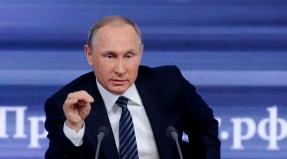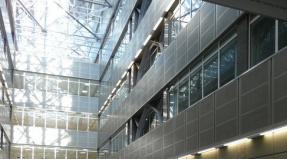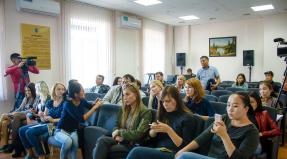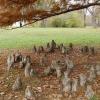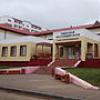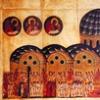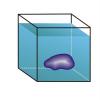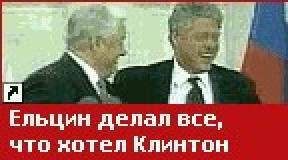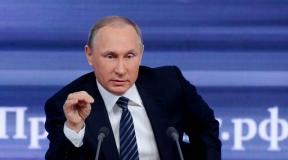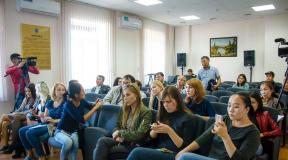Chuvash language in schools of Chuvashia. After schoolchildren, it is proposed to make the Chuvash language compulsory for officials. Forced lessons in Bashkiria
04:22 — REGNUM
The issue of teaching the native language caused a violent reaction in the national republics of the Volga region, splitting society into supporters and opponents of innovations. Parents, teachers, officials, deputies, social activists, human rights activists, religious figures, and nationalist organizations were involved in this process. The strongest resistance, perhaps, arose in Tatarstan, which does not intend to give up and is now looking for “common points of solution” with Moscow. Head of the region Rustam Minnikhanov, who paused for almost two months and then emotionally came out in defense of the Tatar language. In particular, he spoke about the terrorization of schools by supervisory authorities and threatened that this could reflect badly “in relation to our president” on the eve of the 2018 elections, which should “organize” schools. Tension in society also arose in Bashkiria, but was partly neutralized by the decree of the head of the republic Rustem Khamitov on the protection of the languages of the peoples of Russia. And although the authorities reported that 75% of students chose the Bashkir language as a voluntary study, skeptics had doubts about the “voluntariness”, which was supported by a court case: in Bashkiria, one of the first administrative cases in Russia on forced learning of their native language was considered ( Bashkir). In patient Chuvashia, the local intelligentsia is seriously concerned that the “disappearing” Chuvash language will now be stopped being studied altogether, but they prefer to express their indignation behind the scenes. Parents report on local forums about blackmail from teachers, including problems with obtaining a certificate. Head of Chuvashia Mikhail Ignatiev in this situation, he is more concerned about “no one shaking the situation” than about the language topic itself.
Presidential decision
The uproar in the republics arose after the President of Russia instructed the Prosecutor General's Office and Rosobrnadzor to check the number of lessons in the native and regional state languages in the constituent entities of the country. According to the document signed by the head of state, native languages, including the state language of the republic, should be taught only on a voluntary basis.
“The Russian language for us is the state language, the language of interethnic communication, and nothing can replace it; it is the natural spiritual framework of our entire multinational country. Everyone should know him. The languages of the peoples of Russia are also an integral part of the original culture of the peoples of Russia. Learning these languages is a right guaranteed by the Constitution, a voluntary right. Forcing a person to learn a language that is not his native language is just as unacceptable as reducing the level and time of teaching Russian. I draw special attention to this from the heads of regions of the Russian Federation,” Vladimir Putin emphasized earlier.

Daria Antonova © IA REGNUM
Chuvashia: any language, as long as “they don’t undermine the situation”
The official reaction in Chuvashia boiled down to detailed explanations from the Ministry of Education and a short comment from the head of the region Mikhail Ignatiev, which he gave at a press conference. What was most striking in this situation was the fact that at the anniversary congress of the Chuvash National Congress, which celebrated its 25th anniversary and which, among other things, was obliged to vigil for the preservation of the Chuvash language, this issue was avoided, and it was not brought up for open discussion. Really, why spoil your holiday? Mikhail Ignatiev in his brief speech only noted that “language is the basis of national culture, its preservation is the duty of the Chuvash people.”
« I support the position of the national leader », — declared the head of Chuvashia, addressing the participants of the congress and making it clear that further language discussions at the celebration were inappropriate.
Earlier, Mikhail Ignatiev, answering the question of studying the Chuvash language, said that “in matters of studying the Chuvash and Russian languages, no one wants to go too far” and the Ministry of Education of the Republic “together with secondary schools, district and city administrations is also dealing with this issue.”
“The most important thing is that we must approach both languages very carefully. In those schools that are located in the territory of the population that speaks the Chuvash language, I believe they will choose the Chuvash language. Russian language is taught there 9 hours a week. Where the main language is Russian, the Chuvash language is taught within 2-3 hours according to the standard. Where they decide that the Chuvash language is a priority for them, with the consent of the parents, the board of trustees of the secondary school [the Chuvash language] will be taught within 4-6 hours. But the Russian language will still remain. Such decisions are made in agreement with public organizations, the board of trustees and with the consent of the parents themselves,” - assured Mikhail Ignatiev.
According to him, the work will not be carried out from January 1, 2018, “this work is already being carried out: some secondary schools are already at the stage of making a final decision, somewhere they are just starting”:
“Therefore, we will not rush anyone, the most important thing is to take a comprehensive assessment of the situation and make a reasonable, responsible decision, so that later no one will undermine the situation.”
This was followed by explanations from the Ministry of Education of the republic. The release, distributed today, October 30, reports that the republic “has created the necessary conditions” “for receiving education in the state language of the Russian Federation, state languages of the republics and languages of the peoples of the Russian Federation.”
“Curriculums consist of a main part and a part formed by participants in educational relations. The main part includes subject areas and subjects (Russian language and literature, native language and literature, foreign language, mathematics and computer science, social science subjects and others), for compulsory study in all educational organizations. Thus, within the framework of educational programs of general education, the study of the native language and literature is mandatory. Teaching other subjects, elective courses, etc. instead of the native language and literature. prohibited" - the ministry explains.

Svetlana Shapovalova © IA REGNUM
The Ministry of Education notes that the republic is currently “collecting parents’ opinions on which language (Russian, Chuvash, etc.) their children will study as their native language.” Depending on the choice of parents, children will be divided into two groups: “to study their native (Chuvash) language and literature or their native (Russian) language and literature.”
“In the part formed by the participants in educational relations (school, teachers, parents), elective subjects can be studied. The educational organization, observing the law “On languages in the Chuvash Republic”, chooses the subject “State Chuvash language” for study. The remaining participants in educational relations (parents) can choose to study other subjects (for a more in-depth, specialized study of certain subjects), within the capabilities of the educational organization (availability of teachers, work programs, textbooks). This is how the opinions of all participants in educational relations are taken into account. The subject “Chuvash language and literature” is studied within the framework of the national-regional component,” - clarified by the Ministry of Education of Chuvashia.
But the republic is in a fever. The Chuvash intelligentsia, for the most part, does not risk speaking openly, behind the scenes they express serious concern that at this rate the Chuvash language will first disappear from schools, and then they will stop speaking it altogether. And the Chuvash language, which UNESCO previously classified as an endangered language, will experience this status to the fullest.
Meanwhile, in schools, parents en masse write refusals for their children to study the Chuvash language. For which, they say, in many cases they are awarded educational lectures from teachers and directors of educational institutions, who refer to instructions “from above” up to and including reductions in funding. On a local forum, users write that it comes down to almost threats.
“School in Cheboksary. I wrote an application in my native Russian. Besides me, there are 3 more people. We strongly recommended that everyone write Chuvash. The main points: instead of 2 hours of Chuvash - 1 hour of state Chuvash + 1 hour of native language (Chuvash or Russian), whoever chooses Chuvash will pass Chuvash without any problems after the fifth grade, there are no textbooks or programs for native Russian,” — writes, in particular, the user alatyr.
“So we finished it... Today my daughter got a B instead of an A in Chuvash. Last night the average score was still 4.75, and today I come in and see that several A's have been replaced by B's. This is revenge... The teacher promised them that those who speak Chuvash will not receive homework, but those with Russian (the language) will always have a lot of homework. This is chantage", — a user under the nickname “baby” writes on the forum.
"The class teacher is a teacher of Chuvash. She easily forces parents to sign for Chӑvashla (Chuvash language). Knowing in advance about those who do not agree, she simply did not give application forms to such parents. She tells tales about the cancellation of grades for the lesson, about the fact that the lesson will be take place in a playful manner, and treats with threats of not receiving a certificate due to failure to complete the course of study in the subject,” — says a user under the nickname petrov_ petrov.

Alexandra Mayer © IA REGNUM
There are other opinions as well. That “if the question remains like this, two villages and three streets will remain from Chuvashia”, that “the Chuvash language will be forgotten immediately after the last bell at graduation” and that “preserving the Chuvash language is the duty of the Chuvash people, and not the Russian or any other” , therefore, “it is necessary not to force foreign people to learn the Chuvash language, but to encourage the Chuvash people to preserve their language.”
The republic has even created a committee of Russian-speaking parents (only virtual for now), which is “not against teaching the Chuvash language,” but against “forced learning, reducing teaching hours of other educational subjects in favor of the Chuvash language.”
Statistics show that the teaching of the Chuvash language in the republic is sharply declining. In 2009, the Chuvash language was taught as a native language in 344 Chuvash schools and as a state language in all the remaining 198. In 2012, the number of schools with the Chuvash language of instruction decreased to 313. According to the Ministry of Education of Chuvashia as of October 30, 2017, currently education in Primary classes are taught in the Chuvash language in 227 schools, in Tatar - in 16 schools (in 2012 - in 14 schools), in Mordovian - in three educational institutions (in 2012 - in five schools). In the remaining 198 schools, the language of instruction is Russian. In total, as of October 1, 2017, 444 general education organizations were registered in the republic, of which 428 were municipal and 16 were state.
As previously reported IA REGNUM, in 2009, UNESCO classified the Chuvash language as an endangered language. According to the Atlas of Endangered Languages of the World, the list of “vanishing” languages also includes Bashkir, Adyghe, Kalmyk, Udmurt, Komi, Tuvan, Yakut and a number of other national languages. UNESCO determines the viability of languages according to nine criteria, including the number of speakers, the transmission of the language from generation to generation, the availability of educational materials, and attitudes towards the language within society. The atlas provided information about 2.5 thousand endangered languages, a total of 6 thousand languages in the world.
The Chuvash language has two dialects: the upper one (voicing) and the lower one (pointing), which are divided into dialects. Along with the prevailing common Turkic and Chuvash vocabulary itself, the Chuvash language has borrowings from other Turkic languages, as well as from Arabic, Iranian, Mongolian, Russian and Finno-Ugric. The literary Chuvash language developed on the basis of a lower dialect.
The Chuvash language is widespread in Chuvashia, in the Ulyanovsk, Penza, Samara, Saratov, Orenburg regions, Tatarstan and Bashkiria, where the largest Chuvash diasporas are. Let us recall that according to the results of the All-Russian Population Census of 2010, 1.043 million people spoke the Chuvash language (according to the 2002 census - 1.3 million people). In terms of population in Russia, the Chuvash, as in 2002, occupy fifth place, after Russians - 111.02 million people (80.9%), Tatars - 5.31 million people (3.87%), Ukrainians - 1, 93 million people (1.41%), Bashkirs - 1.58 million people (1.15%). The number of residents who indicated their belonging to the Chuvash nation decreased by 74.5 thousand people compared to 2002: in 2002 there were 889,268 people (67.9% of the national structure), in 2010 - 814,750 (67.7%).

Alexandra Mayer © IA REGNUM
Forced lessons in Bashkiria
On the linguistic front, Bashkiria distinguished itself, first of all, by two facts. Statement Rustem Khamitov in September that “more than 75% of students voluntarily chose to study the state language of the republic - the Bashkir language.” Which “indicates a fairly high civil understanding of the state of this topic in society,” and “deprives any basis for any statements that the situation with the study of the Bashkir language in schools has worsened.”
And already in October, Bashkiria became famous at the Russian level for the fact that the directors of one school in the Gafuriysky district, based on the results of a prosecutor’s inspection, were brought to administrative responsibility for forcing third-graders to study the Bashkir language in the presence of parental refusal. Although the case was dismissed “due to insignificance”, and the school director was released from administrative responsibility, limiting himself to an “oral remark”, the fact itself is resonant and indicative.
Probably, the story with “voluntariness” will not end there. The prosecutor's office continues investigations.
Let us note that in order to resolve the language issue, Khamitov previously signed a decree in order to “create conditions for the free study of the state languages” of Bashkiria, “to ensure the effectiveness and accessibility of the system for studying the Bashkir language and the languages of the peoples of the republic.” In addition, the republic has adopted a language support program, which provides for the allocation of considerable grants and other support measures for the republic. At a meeting with the leaders of national public associations, the head of Bashkiria explained that, on the one hand, the constitution “ guarantees the protection of the languages of peoples”, “no prerequisites for the worsening of this situation are visible”, But “the languages of the peoples living on the territory of the republic need protection and support" According to him, this is due to a decrease in the number of people who know their native language. Among the reasons for this negative trend, Rustem Khamitov named globalization, the search for a universal language of communication, as well as a formal attitude towards the issues of teaching native languages.
“Chuvashia courageously and steadfastly resists Russification” – this is the conclusion made by the Belarusian newspaper “Nasha Niva”, publishing an interview with the head of the society Irӗklӗkh Dmitry Stepanov. In his opinion, “Moscow is instilling aggressive militant patriotism into a single friendly nation of “Russians,” a special “Russian world,” and economic dependence on Moscow is created artificially.
“Not so long ago, we sent appeals to all heads of executive authorities (ministers and heads of districts) with the question: do you support enshrining in the Constitution the mandatory knowledge of the Chuvash language for officials? Now I am receiving answers where officials express their agreement. We can conclude that local authorities support us,” said Dmitry Stepanov.
It is characteristic that this was undertaken shortly after the loud statement of the Russian President Vladimir Putin on the inadmissibility of forced teaching of a non-native language. Perhaps Stepanov’s statement is motivated by the fact that there is no clarity in regional educational policy. The clear majority of parents hope that now the Chuvash language will be removed from the compulsory curriculum and transferred to the optional part. But the republican authorities do not give any explanations on this matter.
There was poor audibility in Yoshkar-Ola
“There will always be people who are dissatisfied with the curriculum. And you can always find a reason for it,” the Minister of Education and Youth Policy of the republic shared with Pravda Volga Federal District. – On the day of the meeting of the Presidential Council on Interethnic Relations, held in Yoshkar-Ola, I spoke with Federal Minister Olga Vasilyeva. We talked about the fact that the republics, when establishing their own rules for studying national languages, do not violate federal laws. And we will communicate with dissatisfied parents and explain to them our position.”
Isaev: Chuvash lessons - if you want voluntarily, if you want - forcibly
Indeed, back in January 2011, the Constitutional Court refused to consider a complaint against certain provisions of federal legislation and the regional law “On Languages in the Chuvash Republic.” Themis referred to the fact that the Constitutional Court had previously concluded that the provisions on compulsory study of the native language in educational institutions of the republics do not contradict the Constitution of the Russian Federation. However, Vladimir Putin formulated his opinion unambiguously. “Learning these languages is a right guaranteed by the Constitution, a voluntary right. Forcing a person to learn a language that is not his native language is just as unacceptable as reducing the level and time of teaching Russian. I draw special attention to this from the heads of regions of the Russian Federation,” the president said.
However, the leaders of the republics did not rush to make statements on this matter. And they can be understood: it’s more expensive to discuss with the president, but they don’t want to rush to reform the educational programs. The first president of Tatarstan made a characteristic statement Mintimer Shaimiev.
“Recently, a lot has been said about the recent speech of Russian President Vladimir Vladimirovich Putin in Yoshkar-Ola. Without delving into the essence of what he said, the press began to express various assumptions. But if you look closely, the speech of the President of Russia was not about the oppression of the native languages of the peoples of Russia; on the contrary, he noted the need for their preservation and development. “Putin spoke about creating decent conditions for teaching Russian, the state language of the country,” Shaimiev said at the recent World Tatar Congress.
Discussions about language conflicts in the region have been going on for a long time. “I consider the obligation to teach the Chuvash language unnecessary. Still, this matter must be voluntary,” the president of the Chuvash National Congress told Pravda Volga Federal District. – If a person does not need the Chuvash language, then there is no need to impose himself. You won't be taken for granted. "ChNK is working on a program for the development and popularization of the Chuvash language."

Ugaslov: you won’t be forced to be my dear
For this statement, Ugaslov was subjected to serious criticism from his comrades. “The wind did not blow in our direction, and the Chuvash national interests became the very first thing they sacrificed for career, reputation and other benefits,” wrote the online newspaper Svobodnoe Slovo. – We have observed such manifestations more than once. So there is only one conclusion from this: you should only rely on yourself.”
Meanwhile, other sentiments are also strong among the Chuvash intelligentsia. “You need to honestly answer the question: what is the purpose of the Chuvash language? If for use in everyday life, this is one thing, if for instant oblivion after school, this is completely different,” a candidate of philosophical sciences shared with Pravda PFO Sergey Chekushkin. – The children of my friends enthusiastically learn English, Italian, Chinese, but do not learn Chuvash. All this is sad, but inevitable in the era of globalization. And the level of teaching the Chuvash language in schools often does not stand up to criticism, it is a banal profanation at the expense of huge state money.”
Kubarev: the law is not a wall, you can move it
As for the proposal regarding the mandatory knowledge of the Chuvash language for officials, there is nothing new in it. “Back in 1990, a regional law was adopted requiring compulsory knowledge of the Chuvash language for all civil servants. The document was supposed to come into full force after a 10-year transition period. It was even planned to create special inspections, following the example of the Baltic states, that could strictly punish any violations of this law, the former chairman of the Supreme Council of Chuvashia told Pravda Volga Federal District. “But the idea turned out to be stillborn. After some time, the regional department of the Ministry of Justice of the Russian Federation checked these requirements for compliance with federal legislation and found a bunch of inconsistencies. The law had to be amended accordingly.”
Monitors developments.
Presents to readers its proprietary rating of events of the year. In it they are arranged not chronologically, not by degree of importance, but in alphabetical order. Let history itself judge in the future what was more important and what was less. It must be immediately recognized that some significant facts are deliberately omitted from it, since they were given sufficient attention in previous publications based on the results of the past 2017. But you have to return to something again and again. However, the ranking also contains exclusive information that has waited its time to be made public. Surely readers will not agree with all assessments. But “Pravda PFO” does not pretend to be the ultimate truth.
With merchant scale, this accordion of the Ministry of Culture of Chuvashia. There was no intense competition at the auction; only one step was taken, and the instrument cost the republican budget 1 million 410 thousand rubles. Member of the headquarters of the regional branch of the ONF Vladislav Soldatov claims that without any bidding, such a top-class accordion could be purchased for almost 200 thousand cheaper than indicated in the application. It was not possible to find similar government procurement at an equally high price in other regions.
Residents of the republic use cryptocurrency, the rate of which increased by 900% in the past year. Some firms in Chuvashia have purchased equipment from China to mine bitcoins on an industrial scale. In order to quickly get rich, people mortgaged their apartments and took out excessive loans. But Anatoly Aksakov, Chairman of the State Duma Committee on Financial Markets, warns: remember the lessons of MMM and other “pyramids”; in 2018, the Bitcoin rate may rapidly fall to $200-300. On the other hand, citizens are probably consoled by a vague hope: if the state helps defrauded investors and shareholders, then why shouldn’t it support defrauded cryptocurrencies?
During the velvet season, the delegation of the State Council of Chuvashia goes to Crimea. Among the sights visited are not only the wine cellars of Massandra, but also the villa of a deputy from Novocheboksarsk Vladimir Mikhailov, who received colleagues at the highest level. Based on the results of the visit, an appeal was accepted to the Minister of Defense of the Russian Federation with a request to assign one of the units stationed in Crimea the name of the Red Army division commander V.I. Chapaeva. According to preliminary information from Pravda Volga Federal District, the military department did not consider it advisable to satisfy this request. And no new parliamentary trips to Crimea are planned in the foreseeable future.
Chuvashia found itself in a low-ranking group of leaders in terms of agricultural land taken out of production. According to a source from Pravda Volga Federal District, such information was announced at the final meeting of the board of the Ministry of Agriculture of the Russian Federation. In just three years, the republic has lost over 21 thousand hectares of arable land.
In the village of Yanyshi, Cheboksary district, in the small homeland of the head of Chuvashia Mikhail Ignatiev, became famous throughout the country due to its gigantic scope and splendor. But even in such temples of education, diligence and ability are required from teachers and students. But these qualities are not always present. “In MBOU “Yanyshskaya Secondary School” in 2017, 12 students took the GIA in the form of the OGE,” the first deputy minister of education of the republic told Pravda Volga Federal District Sergey Kudryashov. – The average score in mathematics has worsened, amounting to 2.92 points (in 2016 – 3.33 points). In the Russian language, the average score was 3.42 (in 2016 – 4.11). The share of graduates who successfully passed all OGE exams was 58.33% (in the Cheboksary region - 82.82%). It should be noted that out of 12 students in the ninth grade, 8 students received unsatisfactory grades in mathematics. At the same time, the class was initially underperforming; among the students there were four repeaters.”
Despite such modest results, the school received a grant from the head of the republic last year.
This event had not been reported anywhere before, but Pravda PFO considered it necessary to include it in its rating. Director of the Municipal Unitary Enterprise "Sumerlinsky City Electric Networks", head of the "United Russia" faction in the city A Lexey Rosseykin was driving late at night when he was stopped by traffic police officers. The protocol records that he did not comply with the legal requirement of a police officer to undergo a medical examination for intoxication in the presence of subjective signs, namely: the smell of alcohol on the breath, an unstable posture, speech impairment, a sharp change in the color of the skin, and behavior inappropriate for the situation. Rosseikin wished to undergo examination at a medical institution, but upon arriving there, he changed his mind and refused the procedure.
The magistrate found Rosseykin guilty of committing an offense under Art. 12.26 part 1 of the Code of Administrative Offenses of the Russian Federation, and imposed a fine on him in the amount of 30,000 rubles with deprivation of the right to drive vehicles for a period of 1 year 6 months. But the administrative punishment had no effect on the official and public position of the director of the municipal unitary enterprise and a prominent member of United Russia.

Last year, the championship in this nomination belonged to a painting in the style of socialist realism about the working life of ChZPT, donated by the President Putin the prime minister Medvedev. And now the undisputed leadership belongs to the works of an amateur author Sergei Kuznetsov (Patshina), took place at the Chuvash State Art Museum. At the opening ceremony of the exhibition in front of television cameras, officials and connoisseurs of fine arts did not spare high-flown words in honor of the controversial work of the painter. In particular, it was reported that his canvases vibrate, but if you choose the right numerical code for them, you can tune in to their wave, which will help protect you from all sorts of misfortunes. It got to the point that he was called the bearer of truth, a mediator between higher powers and the viewer. However, a number of representatives of the Chuvash intelligentsia characterized what was happening as profanation. And they explained the amazing respect shown to Kuznetsov’s person by the fact that he is the personal numerologist of the head of the republic, Mikhail Ignatiev, and often gives him recommendations on issues of domestic policy, based on the magic of numbers.

The head of Chuvashia, Mikhail Ignatiev, about reducing the remuneration of government members and heads of departments by 10 percent did not at all mean that they would receive less. After all, only the salaries of senior officials are subject to sequestration. Meanwhile, it is well known that a person in a government position does not live on salary alone. A significant part of the monetary remuneration consists of various allowances and bonuses. And, judging by the declarations of government officials, this component of financial content is only growing. The head of the republic’s income from his main place of work in 2015 was 3 million 488 thousand rubles, and in 2016 – 3 million 739 thousand; at the prime minister's Ivan Motorina– 2 million 983 thousand and 3 million 448 thousand; from the head of the AG CR Yuri Vasiliev– 2 million 706 thousand and 3 million 092 thousand; minister of finance Svetlana Enilina– 2 million 539 thousand and 2 million 711 thousand rubles, respectively. Declarations for 2017 will not be published until May, but we can safely assume that senior leaders will not become poor again.

State Duma deputy Nikolay Malov a year after the elections. Famous tennis player vacates parliamentary seat Marat Safin, representing the Nizhny Novgorod region. The transfer of the vacant mandate by the leadership of the United Russia party to the candidate from Chuvashia caused a shock among the establishment of the neighboring region. Meanwhile, Pravda PFO predicted such a turn of events in advance. Our forecast that Malov would have to leave his post as head of the regional branch of United Russia was also completely justified. As Malov stated in an exclusive interview: “in our time, it is very important to leave gracefully, with dignity, and, most importantly, on time.”

The original one was made by the head of Chuvashia Mikhail Ignatiev a group of admirers of his political talent. A close-knit team of like-minded people, consisting of representatives of large and medium-sized businesses, presented their idol with a personalized wall calendar in both official languages of the republic. In it, Ignatiev is presented in twelve guises according to the number of months: from an equal partner of the president Putin for negotiations and the patriarch's closest associate Kirill to the thrifty homeowner who broke a lot of wood on the eve of the heating season. This masterpiece of the latest printing thought was sent to all government bodies in the region to decorate the interior of the offices of their superiors.
With this nomination everything looks clear. The only representative of Chuvashia among the 30 winners of the district semi-final of the Leaders of Russia competition was the former plenipotentiary representative of the republic in Moscow Leonid Volkov. The vicissitudes of his difficult fate are well known to everyone. And he achieved such impressive success while being unemployed!

The most striking thing is that the residents of Cheboksary did not experience the reconstruction of the Moscow Bridge. The movement, although in a truncated version, continued as usual. And in the first stage, first roller skiers drove across the bridge, then cyclists, then go-kart drivers. Then the main thing began - the technology went. Next came the workers, led by a VIP line; the procession was completed by builders from Pelisker LLC, who threw their helmets up at the end of the passage. But it doesn’t happen that everything will be fine. On the same day, at the entrances to the bridge, the fresh asphalt was washed away by the first downpour.
The environmental picket of the “Young Guard” near the monument to Chapaev in Cheboksary found itself under pressure from its political opponents. An impressive group of supporters of the famous oppositionist came here Navalny chanting anti-government slogans. Initially, the non-systemic opposition planned to hold its rally here as part of an all-Russian anti-corruption campaign. But the city administration did not allow this event, citing the previously planned environmental picket of the “Young Guards”. In the past, such preventive measures brought results, but now Navalny’s supporters have resorted to tactical cunning. They joined the picket with slogans that occasionally mentioned the environment, but at the same time there were demands for the resignation of the Prime Minister of the Russian Federation Dmitry Medvedev and the heads of Chuvashia Mikhail Ignatiev. Moreover, there were incomparably more uninvited “guests” of the picket than its organizers, as a result of which the latter simply got lost. There were no arrests during the protest itself. But then a number of its participants were brought to administrative responsibility.
There was no sadness until the order was awarded” - this is approximately how one can characterize the ambiguous situation in which I found myself Mikhail Ignatiev. Everyone knows that in the spring he was awarded the Order of Honor. In the fall, he was invited to Moscow for an awards ceremony with the participation of President Putin. For this occasion, the head of Chuvashia invited the NTRK film crew with him, and the editors of all state newspapers reserved space on the front page. But the television crews were not allowed into the Kremlin, and Ignatiev was not on the list of recipients on the presidential website. As Ignatiev’s entourage explained to Pravda Volga Federal District, he was nevertheless awarded the order, but at some kind of closed ceremony. Who presented it, where it was presented – all under the cover of secrecy. And in the future, no official messages, no photos.

Nieces of the wife of the head of Chuvashia Elena Saparkina the ombudsman for children's rights shocked few people in the republic. Not even all representatives of the so-called opposition were indignant about this. It's an everyday matter, it won't happen Mikhail Ignatiev to give such a post to a person outside of one’s circle. Observers note two points in this regard. Firstly, the members of the United Russia faction found themselves in an unenviable role, who at first, with noble enthusiasm, argued that a children’s ombudsman was not needed in the republic at all, and then, in a single impulse, approved the new appointment. And secondly, there is a complete discreditation of the human rights institution itself, which should be as independent as possible from the executive branch. By the way, when a few deputies began to seek the return of payments for the third child to low-income families, the children's ombudsman did not utter a word.

Not a single rating of the year can do without the Tractor Plants concern, which has become deafening. Indeed, the total debt of his enterprises exceeded the astronomical mark of 85 billion. Experts reproach the chairman of the board of directors Mikhail Bolotin and general director Alberta Bakova is that they failed to provide effective management. This even sounds strange, since both co-owners of the strategic concern attracted the most proven and reliable people to leadership positions. The first deputy general director for economics and finance is the son of the general director - Vladimir Albertovich Bakov. And the director of the concern for economics is the son of the chairman of the board of directors - Grigory Mikhailovich Bolotin. Moreover, both heirs, according to the biographical information provided on the official website of the concern, were born on the same day - January 23, 1986. To the famous film director Nikita Mikhalkov, whose son-in-law is Albert Bakov, based on these motives, it’s time to shoot a remake of his film “Kin,” where family conflicts are intertwined with the problems of the head of a large enterprise.

At the Urban Planning Council of the Ministry of Construction of Chuvashia, chaired by the Prime Minister of the Republic Ivan Motorina was the Cheboksary VSM railway station, which is supposed to be located on the lands of the Sirmaposin rural settlement. The idea came as a real surprise. This building looks like a spaceport from science fiction. One problem is that there is a delay in the start of the implementation of the entire Moscow-Kazan high-speed highway project. The railway authorities report that it is connected both with the high cost of construction - more than 1 trillion rubles, and with disagreements regarding investors. China is ready to invest, but on the condition that only its materials, technologies and labor will be used.
At the session of the State Council, only representatives of the United Russia party supported the budget of Chuvashia for 2018, and all opposition factions opposed it in an unusually united manner. One of the reasons for the boycott was the government’s refusal to immediately begin construction of a new school in the village of Kashmashi, Morgaush district. In attempts to convince opponents, even a kind of “grand piano in the bushes” was used. At the request of the Minister of Finance Svetlana Enilina Parliament was shown a story from the NTRK news program, where it was stated that the young residents of this village did not need a new school at all. The report was in the Chuvash language, but speaker Valery Filimonov invited everyone to watch it in Russian. There were no people willing to see the masterpiece of journalism for an encore. The speaker did not know that the Internet broadcast of the session was being watched in Kashmashi and was very indignant. “The TV story was edited very biasedly, the children were forced to say the right words, they experienced psychological pressure, and then cried,” the school director sent her message Galina Ershova.
The optimization process also extends to Cheboksary municipal libraries. Several dozen employees received notice of the upcoming dismissal. At the same time, a number of libraries will be closed. People who have worked in their jobs for many years and have been laid off are, of course, in shock. And the position of the Cheboksary administration looks blatant: in fact, the city government is getting rid of the library system as an unnecessary burden. The only justification for this idea is the need to implement the May presidential decrees on increasing the salaries of public sector employees.

The meeting of deputies of the Poretsky district showed amazing sleight of hand in the literal sense of the word. By open vote, the people's representatives, at the suggestion of the district administration, transferred the non-residential one-story building of the Polibinsky FAP to the ownership of the Semyonovsky rural settlement. The trick was that at that time this very building was actually absent. Some time earlier it was dismantled and taken away by unidentified persons. The prosecutor appealed the decision, internal affairs bodies are conducting an investigation.

The Church of the Ascension in the village of Yaushi, Cheboksary region, is recognized as such Grigory Sominov. He managed to convince his parishioner, who was suffering from a mental disorder, that she needed to give him her house and three plots of land. Moreover, she transferred another 400 thousand to the priest for various needs without any documentation. It is intriguing that Sominov was previously convicted of manslaughter, deprived of the priesthood, and after serving his sentence, he inexplicably returned to church service.

Chuvashia to the former deputy head of RUKS Boris Portnov looks unprecedented. According to the department, an ordinary contractor, on his own initiative, set up an illegal sauna in the Government House of Chuvashia, and therefore must compensate for the damage to the budget. The Moscow District Court considered that the claim should be satisfied in full and ordered Portnov to pay 7.6 million rubles. According to the lawyer Galina Vronskaya, which represented Portnov’s interests in court, did not even take into account the fact that budget money for the construction of the sauna was transferred after the initiation of a criminal case regarding its arrangement. At the beginning of the investigation, the Ministry of Construction generally denied that any violations had been committed, but as soon as it smelled like something was wrong, they turned the tables. Now Portnov has all his hope in the Supreme Court of the republic, where he appealed. Representatives of the federal press promised to come to the trial.

Former Chairman of the State Council of Chuvashia Nikolay Ivanov in February he was Deputy Minister for National Policy, External Relations, Press and Information of the Chechen Republic. In principle, there is nothing surprising in the fact that a native of Chuvashia turned out to be in demand in another region; many similar examples can be cited. Observers only note that this personnel decision was made almost simultaneously with the scandalous appointment of a retired adviser as the plenipotentiary representative of Chuvashia in Moscow Ulyukaeva, miserably fired from Rosreestr Yuri Akinshina. For some reason, their personnel in the republic often remain unclaimed.
A native of the Krasnodar region rented an apartment in Cheboksary, and then placed an ad, declaring herself a fortuneteller from an ancient family of healers. A 44-year-old local resident pays a charlatan 4 million rubles for curing her son and lifting the “ancestral curse.” The fraudster, having received the money, disappeared behind the horizon. But employees of the Criminal Investigation Department of the Ministry of Internal Affairs of Chuvashia calculated her whereabouts when she came to her relatives to celebrate the New Year. The task force went to the Krasnodar region, where they detained. The attacker promised to compensate the victim in full for the damage in the near future.
Resident of Vurnar Lidiya Morkovkina I’m used to bringing all kinds of delegations to my apartment. Indeed, the local administration has been conducting a kind of survival experiment here for several years now, refusing to recognize the house as unsafe even though there are holes in the ceiling. The problem was solved in a very simple way - they installed supports for the ceilings. “Everyone has visited me: the People’s Front, housing control, and some commissions,” Morkovkina told Pravda Volga Federal District, not without pride, showing her personal archive from government papers. – Once they even wrote a big article about me in the newspaper. After this, the village administration took action - they installed a second support in the room. They say, appreciate our generosity, live and be happy. And I’m already approaching seventy, but I’m not a total fool to wait for a beam to fall on my head. That’s why I walk in the fresh air during the day, strengthening my health, and go to my relatives to spend the night. I’m only worried about the neighbors upstairs, that they won’t fall through to the bottom floor.”
At the end of November, the city manager of Kanasha Vladislav Sofronov summer stage in the city park. The ceremony was attended by mobilized state employees and local amateur artists, who did not really understand what was happening and why they had to freeze. And the mayor, apparently, in this way wanted to smooth out the failure of the road repair program in Kanash. But the plan failed; at a meeting with the heads of municipalities in the Government House, he heard not the most pleasant statements about himself. Soon Sofronov resigned, and subsequent events on the stage will clearly take place without his participation.

Mass demonstration and rally near the Lenin monument on Republic Square to celebrate the 100th anniversary of the October Revolution in Cheboksary. The anniversary program was as extensive as ever. In addition to the traditional demonstration, it included a ceremonial meeting, a concert, and even the opening of a capsule with a message to descendants, laid half a century ago at another Cheboksary monument to the leader of the world proletariat - near the entrance of a cotton mill. But as it later turned out, the legal owner of the sculpture did not give permission to interfere with his private property. Moreover, this businessman, irritated by the lack of interest on the part of the Communist Party of the Russian Federation in its ideological symbols, began to threaten to take the monument to his village in the Kanashsky district.
The Ministry of Education of the Republic is in an unenviable position after the well-known instruction of President Putin on the inadmissibility of imposing the study of national languages in the regions of the Russian Federation. On the one hand, schools were subjected to total inspections; the Prosecutor General's Office classified Chuvashia as one of the regions where parents most often complain about this matter. On the other hand, it is impossible to immediately make fundamental changes to the educational process with the subsequent dismissal of dozens of teachers of the Chuvash language. There was little bloodshed; the head of the republic, just in case, reprimanded the Minister of Education Yuri Isaev. (In Tatarstan, the head of the regional Ministry of Education was generally fired). And the overwhelming majority of parents, after detailed conversations with teachers, changed their minds and chose the Chuvash language as their native language for education. According to the Ministry of Education, there were about 84 percent of them, although the share of the Chuvash population in the republic is 68 percent. A report was sent to Moscow stating that the president’s instructions had been fully implemented.
|Dmitry Nikolaev | 3504
Now it's time to turn
Here we come to
Let's sum it up

The Chuvash language and Chuvash culture can be quite interesting, of course, if they are interesting to present to the audience.
Editor's Blog: Journalism as It Is | Dmitry Nikolaev | 3504
On the catalog page of educational institutions on our website: the author asks not much, not little - to cancel Chuvash language lessons in one of the Cheboksary schools. At first, in the heat of the moment, I wanted to write an answer there, but then I thought that I had so many thoughts that I couldn’t fit them into just a few lines. In general, please consider this publication a response to the comment :)
If this comment were the only statement on the topic “Why do they study the Chuvash language in schools,” then the most correct thing would be to simply not pay attention to it. In the end, every person has the right to have his own opinion, even if it is not very correct. But this is precisely the problem: many parents are not at all delighted that the Chuvash language is included in the school curriculum. No, if everything happened somewhere in the Primorsky Territory on the shores of the Pacific Ocean, then everything would be justified and logical. But this is happening in Cheboksary, the capital of the Chuvash Republic, where parents are “seriously” outraged that their children are learning the Chuvash language.
Rhetorical question: do these families speak Chuvash? The answer is 146% predictable :)))
At first glance, a simple question: “Do schoolchildren need the Chuvash language?” capable of causing a protracted discussion where the parties will still remain unconvinced. Without claiming to be the ultimate truth, I will simply express my point of view, formatting it in the form of theses.
Thesis one: for the most part, a misunderstanding of why the Chuvash language is taught in schools in Chuvashia is based on a misunderstanding of how this knowledge can be applied and used in life around us. Of course, if a person knows only the word “Shupashkar” (the Chuvash name for Cheboksary) out of the entire Chuvash vocabulary, then he really does not understand why the Chuvash language is needed when one can do without it.
This is not strange, something else is strange - for some reason, these same people don’t ask the question: why do they study chemistry or the beginnings of mathematical analysis at school?? How much demand will graduates have for knowledge on the valency of chemical elements or the integration of trigonometric functions? You can also recall the Second Law of Thermodynamics or the economic geography of South America - how necessary is this for every student? However, I have never encountered the opinion that physics is an “unnecessary” subject. It is studied, often without understanding at all, and is also conveniently forgotten (if there is something to forget:), but it’s true - few parents will say: “Remove physics from the school curriculum.” And they talk about the Chuvash language.
Now it's time to turn thesis two: the school curriculum is drawn up taking into account the diversified development of the student, expanding his horizons, providing knowledge that may be in demand in his future life and will help in choosing a profession. In one of the publications of this blog (“”), a situation was examined in some detail when basic knowledge of physics and mathematics turned out to be in great demand for a journalist. In principle, this is how it is: we learn the basic skills of reading/counting in elementary school, the rest of education is the development of our cultural and intellectual baggage.
From this point of view, the Chuvash language is no worse than physics :) In fact, learning an unfamiliar (no matter what) language quite strongly contributes to the development of intelligence - memorizing new words, a completely different grammar - no, this has a certain benefit. I'm not even talking about the similarities with other Turkic languages although, if a person is not interested in the Chuvash language, then Turkish will not interest him either.
Here we come to the third thesis: complaints about the study of the Chuvash language in schools are largely related to the low level of national self-awareness (and, probably, national culture too). By “national” I mean Chuvash, I think this is understandable. At one time, when I first came to Kazan, I was surprised that young people there spoke Tatar to each other freely.
I simply could not imagine something similar in relation to Cheboksary and the Chuvash language, here everything was completely the opposite. Knowledge and command of the Chuvash language, by default, showed that the young man (or girl) had just arrived from the countryside. I remember a remark in one of the newspapers: “Why, if a guy gnaws sunflower seeds in a trolleybus, then he must know the Chuvash language?” - alas, but it is not far from the truth :(
It was not in vain that I started talking about Kazan. Tell me honestly: can you imagine a situation where the parents of a child from a Kazan school are indignant at the fact that they study the Tatar language there? This is an absolutely impossible situation; you can fantasize for a long time about what such a zealous parent will hear in response. I feel a little sorry for him.
Let's sum it up result: the Chuvash language is still needed in schools in Chuvashia, but... but, of course, it is worth first reconsidering the entire system of its teaching, with an emphasis on national culture. In the meantime, having opened the textbook, we see there Cippolino, Little Red Riding Hood, and Britney Spears is there too :) All these are the costs of the current national identity, and as long as it remains like this and only like this, every day there will be parents in Cheboksary who are indignant at the fact that that their children study the Chuvash language at school.
PS. To be fair, it should be noted that I do not know the Chuvash language. But at the moment, I find this more of a disadvantage than an advantage. Although, in my time, studying at a school with in-depth study of the English language was much more prestigious than knowing at least a few common phrases in Chuvash. One, of course, does not interfere with the other at all, but who ever thought about this?
Despite the fact that the issue of teaching national languages in schools is actively discussed mainly in Tatarstan, this problem also affected Chuvashia. Human rights lawyer Alexey Glukhov, in his column for Idel.Realii, talks about the legal aspects of teaching the Chuvash language.
The Chuvash language appeared in the schools of the republic back in the 90s, but its teaching was selective. There was practically no educational literature. There were educational institutions that did not have such a subject as the “Chuvash language” at all. My studies at school took place in those very “dashing 90s”, and I did not have such a subject. In high school, “Chuvash literature” only appeared - and then in Russian. However, among younger schoolchildren, the Chuvash language was present as a subject already in the 90s.
As a parent, I can say that in essence this is the same as a music lesson - it doesn’t really matter whether you have a voice or not, but you can get an “A”
In 2003, with the adoption of the law “On Languages in the Chuvash Republic,” this subject became mandatory for all schoolchildren in the region, since, according to the provisions of this law, “in all educational institutions of the Chuvash Republic with a different language of instruction, the Chuvash language is studied as a subject.” I will not go into assessing the quality of teaching and curriculum, but as a parent I can say that in essence this is the same as a music lesson - it doesn’t really matter whether you have a voice or not, but you can get an “A”.
In 2012, the Federal State Educational Standard was adopted, according to which the subjects “native language and literature” were introduced. There is a mention of the possibility of studying the state languages of the republics, but only in the status of a declaration.
The adoption of the Federal State Educational Standard did not significantly affect language teaching in schools in the republic. Moreover, in 2013, a new law “On Education” was adopted in Chuvashia, which stated that “in the Chuvash Republic, the creation of conditions for the study and teaching of the Chuvash and Russian languages as the state languages of the Chuvash Republic is ensured.”
There were isolated complaints and protests in connection with the compulsory study of the Chuvash language. But through persuasion, threats and compromises they were localized at the school level, or, in extreme cases, at the municipal level
Everything was calm. Yes, there were isolated complaints and protests in connection with the compulsory study of the Chuvash language. But through persuasion, threats and compromises, they were localized at the school level, or, in extreme cases, at the municipal level. As a rule, schools had three lessons of the Chuvash language per week. In some it was reduced to two hours. In elementary school, instead of one lesson of Chuvash, we had mathematics (according to the parents).
The authorities even adopted a Republican target program for the implementation of the Law of the Chuvash Republic “On languages in the Chuvash Republic” for 2013-2020, within the framework of which, among other goals, there is “ensuring the functional development of the Chuvash language as one of the state languages of the Chuvash Republic.”
So, the influence of the Federal State Educational Standard still took place in the school curricula. Depending on the school, the Chuvash (state) language and the native (Chuvash) language and literary reading appeared in the curriculum. By the way, in most schools the Chuvash language was studied as a native language. And until 2017, no one asked parents what their children’s native language was.
After the famous saying Vladimir Putin regarding native languages, schools hastily began to collect applications from parents with a request to ensure the study of their native language. As a rule, the choice was between Chuvash and Russian.
Until 2017, no one asked parents what their children’s native language was.
The results shocked education officials a little - they did not expect to see a high percentage of applications about their native Russian language (this is in the city). And then a problem arose. There are no methods of teaching the “native Russian language”, no teachers with such qualifications, and certainly no educational literature.
Therefore, through persuasion and threats, parents who chose the Russian language were forced to change their choice and rewrite their applications. Children of particularly persistent parents now do not have such a subject as the “Chuvash language” at all.
The position of the Ministry of Education of Chuvashia is very peculiar. They believe that Chuvash should remain in the teaching system as the state language of the republic. However, they get confused all the time. After all, the Chuvash (state) language and the native Chuvash language are different subjects for which there should be different curricula, textbooks, etc. Moreover, a selective analysis of the curriculum of urban schools showed that there is a subject “native (Chuvash) language”.
